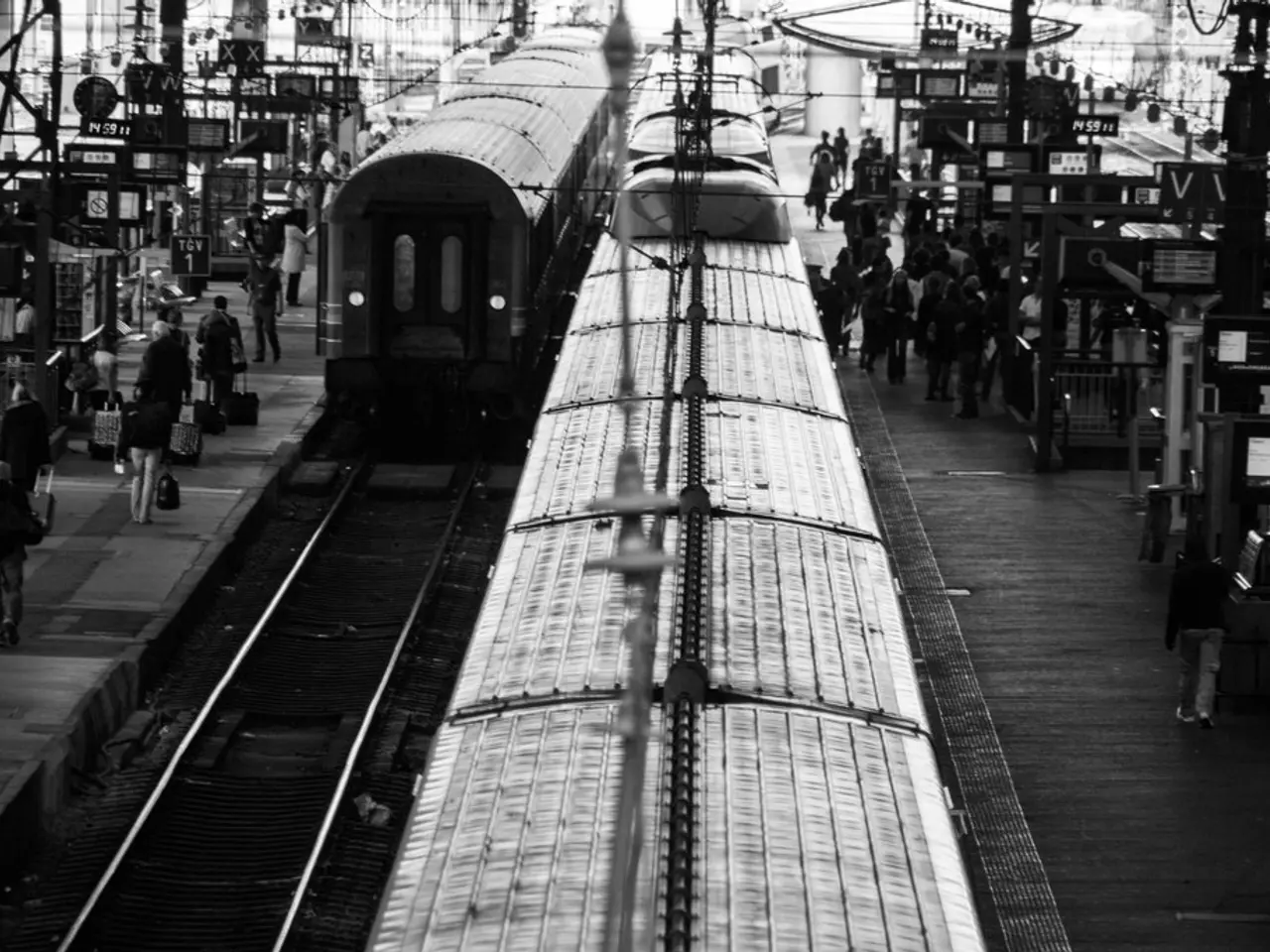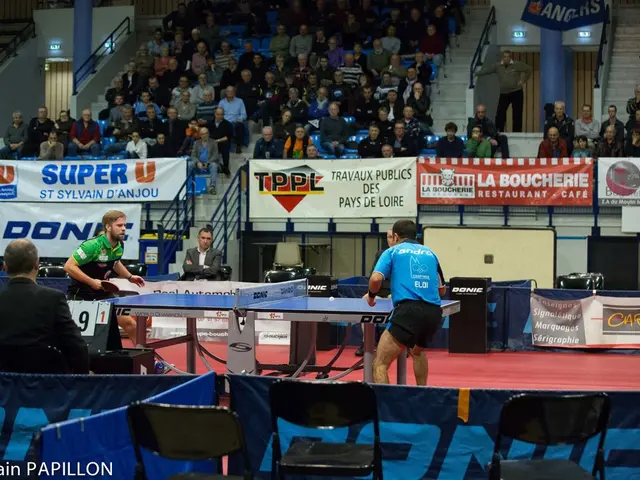Following the commotion at the railway construction site, Prime Minister Schweitzer extends invitations for a railway summit in Mainz, with Schnieder also included
Rhineland-Palatinate Hosts Rail Summit to Discuss Infrastructure Investments
Rhineland-Palatinate, a German state known for its picturesque landscapes and rich history, is set to host a rail summit, or "Bahn-Gipfel," in Mainz this fall. The summit, scheduled for October 28, is four months before the March 2026 state election.
The goal of the summit is to improve coordination and accelerate the expansion of railway lines in Rhineland-Palatinate. This is not just in response to the recent train chaos and renovation projects on the Rhine Valley lines, but also due to the federal government's funds from the "Infrastructure" special fund.
Alexander Schweitzer, Rhineland-Palatinate's Minister-President (SPD), and Federal Transport Minister Patrick Schnieder (CDU) have been invited to the summit. The aim is to reach an understanding with all responsible parties about priorities and the concrete implementation of investments in Rhineland-Palatinate for efficient task management and long-term planning of rail traffic in and through Rhineland-Palatinate.
Rhineland-Palatinate considers investments in rail infrastructure crucial for its economic location, particularly for logistics and freight transport. Efficient and reliable rail connections are a real locational advantage for the state to compete internationally.
The Ministry of Mobility in Rhineland-Palatinate is investigating various aspects such as system resilience, tourist potential, connection with bus and rail lines, connection to the place of residence, environmental and climate protection, and CO2 savings for the reactivation of these railway lines.
Some notable types of railway reactivation proposals in Rhineland-Palatinate include reactivations of local branch lines that were closed in the late 20th century due to declining ridership. Lines aimed at improving connections within the Trier region, the Westerwald, or the areas near Koblenz and Kaiserslautern are also common. Projects supported by regional transport authorities like the Zweckverband Schienenpersonennahverkehr Rheinland-Pfalz Süd focus on restoring services that integrate with the Rhine-Neckar or Verkehrsverbund Rhein-Mosel networks.
However, specific named lines and their exact project statuses vary depending on funding, public interest, and environmental assessments. Some lines are in feasibility or planning stages, with studies being conducted to evaluate costs and projected ridership. Others may be in active restoration phases, including infrastructure repairs or station refurbishments. Some remain proposals with uncertain timelines, subject to political decisions or budget allocations.
Recent local government publications reveal that Rhineland-Palatinate has commissioned cost-benefit analyses for the reactivation of twelve railway lines, including the "Glahntalbahn," the "Eifelquerbahn," and the "Zellertalbahn."
In May, train services in Mainz were extensively disrupted due to multiple construction sites on routes heading north and south by Deutsche Bahn. The disruption caused particular concern due to a lack of prior communication about the construction chaos. The "Bahn-Gipfel" aims to address such issues and ensure that goods, as well as passengers and commuters, arrive at their destination on time and efficiently.
For the latest and detailed project status of the proposed railway lines to be reactivated in Rhineland-Palatinate, it is recommended to consult official Rhineland-Palatinate transport authority websites.
Read also:
- Citizen Thekla Walker, Minister, urges: "Let's face our responsibilities at home"
- Editorial Correspondence: Justifying the Elimination of a Program Earmarked for Reducing Our Own Carbon Footprint?
- Parliamentary proceedings in Germany's Bundestag this week
- Ford Announces Plans to Deliver Versatile Electric Vehicle Platforms, Known as Modular Skateboard EVs







